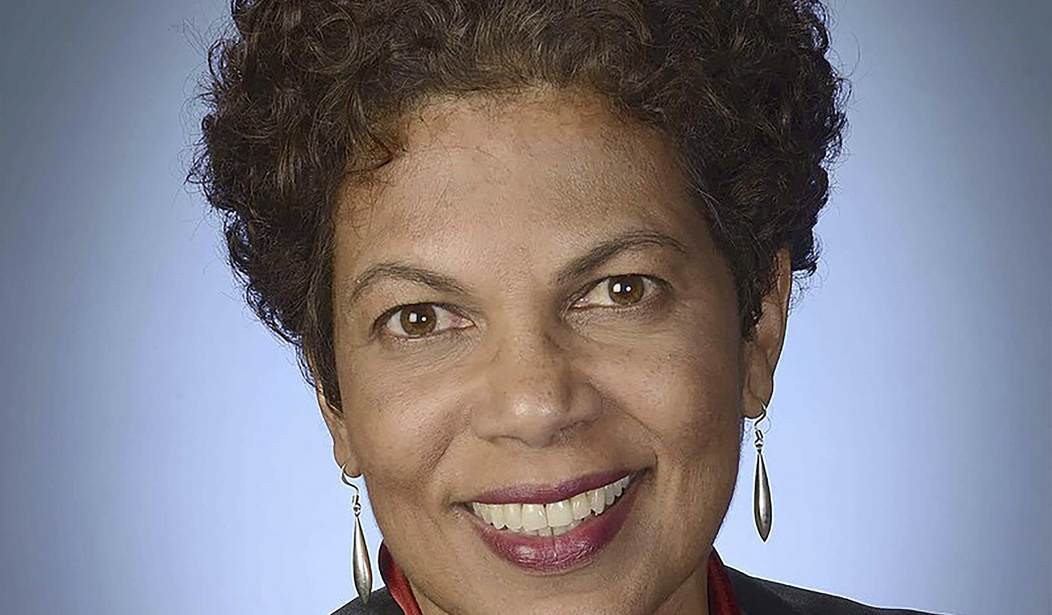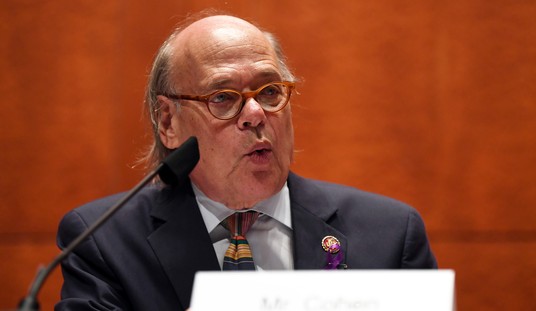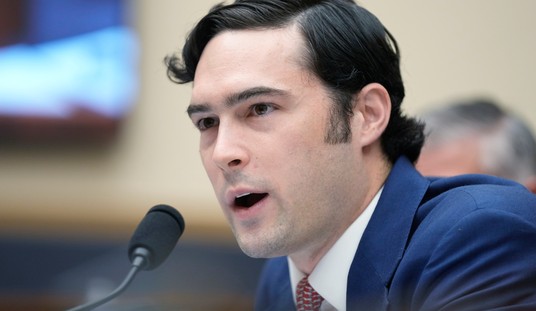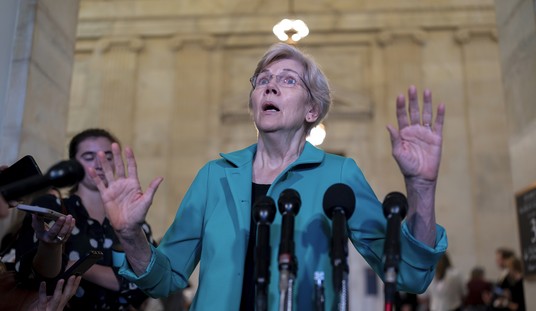Now, don’t get too excited, but this is still good news: Trump’s gag order has been suspended, temporarily. We got the news via ‘D.C. Draino:’
🚨DC Circuit Court of Appeals suspends Trump’s gag order in the J6 criminal case, overruling Judge Chuthkan
— DC_Draino (@DC_Draino) November 3, 2023
The issue will be argued on November 20th
Trump can now speak freely and publicly defend himself once again pic.twitter.com/0ZSFSWFCAC
As he notes, this is an administrative stay only, not necessarily reflecting on the merits. Still, ‘Draino’ is right on the money when he says this:
Every delay is a win
— DC_Draino (@DC_Draino) November 3, 2023
Every time Trump gets more free speech to defend himself is a win
Every time Obama-appointed Judge Chuthkan gets reversed is a win
The DC Circuit may reinstate the gag order after oral arguments but for this next 3 weeks, President Trump regains his rights
And it is significant that the court didn’t believe that silencing Trump was such an emergency that they had to shut him up for a few weeks longer.
To go back a little bit, the meat of the (now stayed) order reads as follows:
Accordingly, and pursuant to Local Criminal Rule 57.7(c), it is hereby ORDERED that:
All interested parties in this matter, including the parties and their counsel, are prohibited from making any public statements, or directing others to make any public statements, that target (1) the Special Counsel prosecuting this case or his staff; (2) defense counsel or their staff; (3) any of this court’s staff or other supporting personnel; or (4) any reasonably foreseeable witness or the substance of their testimony.
This Order shall not be construed to prohibit Defendant from making statements criticizing the government generally, including the current administration or the Department of Justice; statements asserting that Defendant is innocent of the charges against him, or that his prosecution is politically motivated; or statements criticizing the campaign platforms or policies of Defendant’s current political rivals, such as former Vice President Pence.
(Due to the limitations of this platform, we couldn’t properly indent the second paragraph.)
The indispensable Jonathan Turley wrote a column denouncing the order at the time …
"The Trump gag order should be struck down" (@TheHillOpinion) https://t.co/B8xJZohylA
— The Hill (@thehill) October 18, 2023
… and it is worth quoting again, now:
However, this order should concern everyone who values freedom of speech. While the odds may favor Chutkan on appeal, this order should be overturned as overbroad and dangerous. …
These orders come at a great cost — limiting both parties and counsels in raising objections to alleged abuses of the government. The First Amendment was written in the aftermath of such abuses, including the infamous prosecution of publisher John Peter Zenger 290 years ago in 1733.
Some polls show that a majority now believe the Trump prosecutions are ‘politically motivated.’ Tens of millions oppose the prosecutions, and this will be the single most-discussed issue of the campaign. Yet, one candidate would be both the subject of this national debate and a gag[] order barring participation in it.
Recommended
With respect to Turley, he is right but not concrete enough in what he is saying. Right now, nearly everyone is free to speak about the prosecution … except Trump and his campaign. So, for instance, Joe Biden could say ‘Jack Smith is a courageous prosecutor with great integrity. If he thinks Trump is guilty, he probably is.’ But Trump can’t say, ‘Jack Smith is a political hack, persecuting me for crimes I didn’t commit.’ And the same can be said for any Republican running against him in the primary. Ron DeSantis has actually been very good about denouncing the prosecution as the witch hunt it plainly is so we couldn’t imagine him saying anything praising the prosecutors. But Chris Christie might easily be inclined to say something like our hypothetical ‘Jack Smith is a courageous prosecutor with great integrity. If he thinks Trump is guilty, he probably is.’ But Trump can’t respond. That is unfair.
And the order is worse than that. It also prohibits Trump from ‘directing others to make any public statements’ targeting the various persons listed in the order. This makes a certain amount of sense, but it also leads to potentially endless court actions that threaten the free speech of other people not involved in the case. After all, how many people online are actually speaking as paid spokespersons of the Trump campaign? The answer is: We don’t know.
So, let’s say hypothetically a random, anonymous person on TSMSFKA Twitter (The Social Media Site Formerly Known As Twitter) writes ‘Jack Smith is a political hack!’ Jack Smith then could justify investigating that account to determine whether or not this person was acting under Trump’s orders, which would involve very likely outing and doxxing the account holder—and for no other reason than because that person supported Trump. There has been a lot of attacks on people for being anonymous when speaking, but the courts has long recognized that there was a right to engage in anonymous speech:
‘Anonymous pamphlets, leaflets, brochures and even books have played an important role in the progress of mankind.’ Talley v. California, 362 U. S., at 64. Great works of literature have frequently been produced by authors writing under assumed names. Despite readers' curiosity and the public's interest in identifying the creator of a work of art, an author generally is free to decide whether or not to disclose his or her true identity. The decision in favor of anonymity may be motivated by fear of economic or official retaliation, by concern about social ostracism, or merely by a desire to preserve as much of one's privacy as possible. Whatever the motivation may be, at least in the field of literary endeavor, the interest in having anonymous works enter the marketplace of ideas unquestionably outweighs any public interest in requiring disclosure as a condition of entry. Accordingly, an author's decision to remain anonymous, like other decisions concerning omissions or additions to the content of a publication, is an aspect of the freedom of speech protected by the First Amendment.
McIntyre v. Ohio Elections Comm'n, 514 U.S. 334 (1995). For instance, a person might be anonymous because he wants to complain about the company he worked for, without getting fired. Or she might have hidden disabilities and fear that if her coworkers found out, she might lose her job for that reason. Or he might be secretly Jewish in a State Department filled with antisemites and want to expose their misconduct without retaliation.
(And the second example is precisely why this author used to be anonymous.)
Or maybe you would just be concerned about what your daughters’ friends would think if they knew what you did for a living.
And yet, in the process of trying to enforce this order, Jack Smith would likely be allowed to go after many anonymous accounts. The right to anonymity is not absolute, but we don't think it should be pierced for speech merely 'targeting,' people involved in the case.
Finally, Judge Chutkan seemed to suggest that Trump should be treated like any other person on trial. But does that make sense? Apart from the general concerns that the judiciary might be used to influence elections, Chutkan seems to be ignoring that there is an inherent conflict of interest when federal judges can influence elections. In short, taking down Trump might be good for Judge Chutkan’s career.
Our Constitution sets it up so that it is hard to retaliate against a federal judge. Basically, every federal judge can serve until death or serious disability, retirement or until they are impeached. So, a second Trump presidency would have a severe uphill battle retaliating against Judge Chutkan.
But many judges also want to be promoted, too. They dream of being on a circuit court or possibly even in the Supreme Court. And even if Judge Chutkan wasn’t involved in one of these Trump trials, he wouldn’t be likely to appoint her to a higher court because of her politics. If Judge Chutkan wants a promotion, her chances become significantly better if a Democrat is president in 2024. And of course, the same problem would exist if a republican presided over the case, only flipped: The judge would have an interest, conflicting with the interests of justice, in seeing a Republican win the White House in 2024 so he or she would be more likely to get a promotion.
And here’s the thing about bias: It is always seen as potentially cutting both ways. Let’s pick an particularly egregious example. Let’s imagine that a woman is on trial for assault and the judge turns out to be her loving father. The prosecutor would have grounds for having the judge recused, but so would the defendant. Why would the defendant have grounds for recusal? Because the defendant would have to worry that the judge, in order to prove how ‘impartial’ he is, might go harder on her than he would for other similarly situated defendants. So, both the prosecutor and the defendant would have a reasonable concern that the judge might not treat this defendant the same as anyone else.
Of course, the problem of bias we are discussing is inherent for pretty much every federal judge not currently on the Supreme Court. The concern that the judge might go easier or harder on Trump because he or she wants a promotion can’t be eliminated. But it can be limited if the courts acknowledge the problem and make sure that interference with the election is minimized. And that’s another reason to severely limit this gag order.
Which is not to say the judge should say anything goes. But it should be limited very explicitly to forms of speech that are not protected by the First Amendment. So, if we were the judge, we would limit the order to prohibiting only speech that threatens those persons listed, or incites violence toward them, as those terms are understood in the case law—and those are two very high bars. We have spoken about what incitement actually means under the First Amendment before, and it is much more than simply badmouthing someone. This also would limit the problem of piercing anonymity, because law criminal already routinely removes anonymity for these unprotected forms of expression.
Thus today we have a temporary victory for Trump. As of right now, Trump is free to criticize Judge Chutkan. Theoretically, he wouldn’t be violating any order of the court we are aware of if he actually threatened Jack Smith, but there are plenty of federal criminal statutes that would be triggered if he dared to do that, anyway—as there should be.
Interestingly enough, Trump hasn’t posted anything on the subject just yet. We suspect his lawyers have told him not to say anything and we would submit maybe that is a bad idea. If they could convince Trump to post harmless statements about the case—free of true threats or true incitement—then it would show that he can be trusted to speak freely in the future.
On to reactions:
Imagine that…a judge who thinks people have rights. A DC judge at that…Interesting. 🤔 https://t.co/7O18ZGeqEt
— Mr. Phil (@Phil_The_Aggie) November 4, 2023
Told you. 😂
— DOC (@doctormalibu) November 3, 2023
This is GREAT News!
Judge Chunky did exactly what Trump wanted her to do when she refused to amend her order.
Hopefully the appellate court will sustain her order do Trump can do a direct appeal to SCOTUS via Rule 11.
See here: https://t.co/uYj1jrXcQE https://t.co/qddlLYUttb pic.twitter.com/JJBzJFB2LT
To sum it up, he is basically saying this needs to go to the Supreme Court. If this was just one case, we would be inclined to disagree. But since there are multiple cases involving Trump in multiple parts of the country, we tend to agree. The Supreme Court should step in and set some ‘rules for the road’ that would influence all of the prosecutions against him.
The legal system is always too slow and expensive, but on occasion, if you have time and money, it will make the correct decision. Trump has the same right to speak freely as every other citizen. All of us should have protested the gag orders against him. https://t.co/9hlOyGlGe8
— William Sumner Scott (@WmSumnerScott) November 4, 2023
This is getting hard to keep track of. https://t.co/Y3DYVBGQT8
— Freedom to Think (@JeffDF2T) November 4, 2023
You said it, brother.
The fact that this is happening in America, tells you everything you need to know about Democrats and their intentions.
— Heavy Rain (@eepauley) November 4, 2023
They hate what they can’t control. https://t.co/0rqUikJGZe
— I'LL BE BACK!!! (@DavidYeshua4) November 3, 2023
That’s a pretty good photoshop.
So he can continue to ruin his chances for a plea deal or prison release in the case of appeal by being a complete douchebag on Truth Social? Swell.
— Bill Mitchell (@mitchellvii) November 4, 2023
Bill Mitchell is such a weird case. A few years ago, he was one of the most unhinged sycophants for Trump ever to appear on Twitter/X. Now he is one of the most unhinged critics of Trump. Is it too much to ask for him to become ‘hinged?’
One of Trump’s largest critics, Ron DeSantis, has regularly stated that these prosecutions are unfair and politically motivated. Every critic should be able to say that. Every American should be dismayed with the way Trump is being treated and the way the system is being used to try to manipulate the election, even if you hate Trump—if only because what they do to Trump today, is what they could do to you (or a candidate you support) tomorrow. But unhinged critics are not likely to see they are building the gallows they might be hung from tomorrow.
This is no endorsement one way or the other about DJT- But this should NEVER happen In America in the first place. Freedom of speech is the linchpin to a free society. https://t.co/9KROKT1LSd
— Cattleman🪓 (@SRLucie92) November 4, 2023
Exactly.
***
Editor’s Note: Do you enjoy Twitchy’s conservative reporting taking on the radical left and woke media? Support our work so that we can continue to bring you the truth. Join Twitchy VIP and use the promo code SAVEAMERICA to get 40% off your VIP membership!

























Join the conversation as a VIP Member